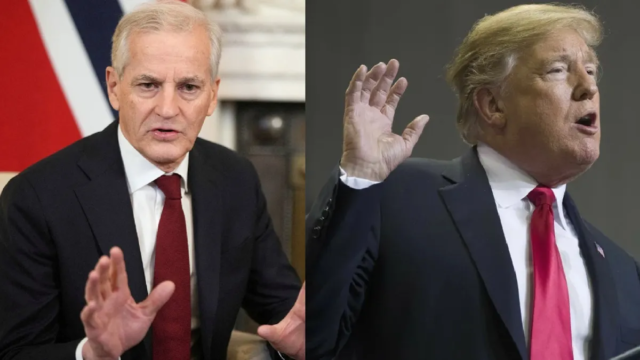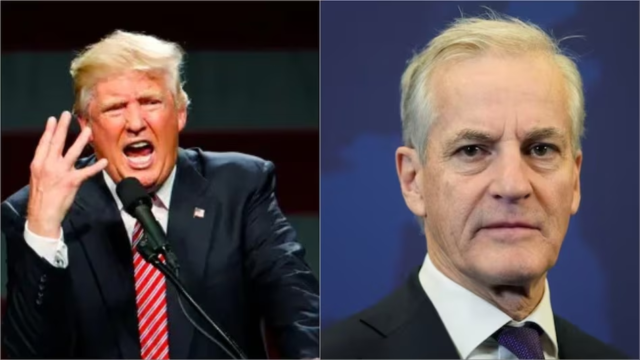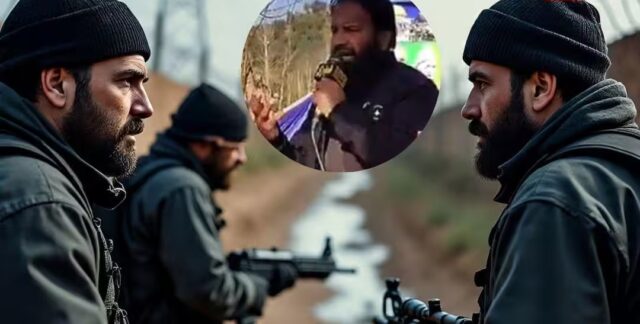The worst news for Russia came from America, will Putin’s army kneel down in front of a small country?

Russia-Ukraine War: Russia seems to be lagging somewhere in the 10-month-long war with Ukraine. The four states Kherson, Luhansk, Donetsk and Zaporizhzhya which were merged into Russia by President Putin are also slipping out of hand. Ukraine’s army has recaptured Kherson and Luhansk. Now Zaporizhia and Donetsk are being attacked. Meanwhile, the worst news has come from America for Russia. It has been claimed by the US that this winter is going to be heavy on Putin’s soldiers, because the Russian army is now short of arms and ammunition and morale has also decreased.
With the US saying Russian troops are digging trenches in preparation for an expected standoff in the war in winter, it would be easy to conclude that the fighting in Ukraine will slow down until the snow melts in the spring. But evidence from the Ukrainian battlefield points to a different scenario. A career US Special Forces officer who conducted field research on the 2008 and 2014 wars in Georgia and Ukraine said the war demonstrated that only one side, the Ukrainians, could execute effective maneuvers. I believe the Ukrainians will attempt to launch a large-scale counteroffensive later in the winter, when the snow is still frozen. Effects of Winter on Warfare Historically, the pace of fighting tends to slow down in winter. Weapons and other equipment can freeze in extreme cold, and it is more difficult to operate weapons while wearing thick gloves.
Shorter days in winter are another factor. Despite technological advances, most fighting during this war took place during the day. But this winter could be different for the Ukrainian military. Firstly, Ukrainian winters are not nearly as cold and snowy as many people believe. For example, Donetsk has an average temperature of around 25 °F (-4 °C) in January and February. Its snowiest month, January, averages only 4.9 inches or .12 meters of snow. On average both January and February have as many rainy days as snowy days – about two days of each.
A Brief History of the Russian Invasion
Since the invasion began in February 2022, Russia made most of its gains in the first month of the war when it captured Kherson, besieged Mariupol, and reached the thresholds of Kiev and Kharkiv. But Russia soon gave up on Kiev and withdrew all its forces from the north. Failing to achieve a quick victory, Russia instead sought to make major gains in the east and south. Over the next five months, the Russians captured Mariupol, but little of tactical or strategic importance. During this time, Ukraine built up its combat power with new weapons from the West and planned a major counteroffensive, which it planned to launch on August 28, 2022. In the first week of the counteroffensive, Ukraine liberated more territory than Russia had captured in the previous five months. The success of the counter-offensive showed that Ukraine’s forces were superior to Russia’s in every category with the exception of size. He had better doctrine, leaders, tactics, culture and will – and he had just proved that he could fight a battle effectively with a combination of artillery, tanks, troops and airstrikes. By September 12, 2022, Ukraine had liberated much of Kharkiv Oblast as Russian troops routinely fled their bases. After fully liberating Kharkiv Oblast in early October 2022, Ukraine turned its attention to Kherson in the south. This was a different battle, and in some ways the Ukrainian military followed Chinese military strategist Sun Tzu’s principle of “winning without a fight”.
Ukraine started falling heavy on Russia
The Ukrainians were able to conquer most of the territory without using much troops on the ground. Ukraine has used long-range rockets supplied by the US and NATO allies to bombard Russian targets and access supply lines that were previously out of reach. These attacks reduced the Russian army west of the Dnieper River to an untenable position. Realizing the situation, Russia made a surprise announcement on November 9, 2022 that it was withdrawing from Kherson. Two days later, Russia completed the withdrawal of its forces from the west bank of the river. What to expect from Russia During the war, Russia has demonstrated little ability to conduct effective combat operations. This is not something Russia can change overnight or over the course of a winter.
Russia’s best forces have been decimated throughout the conflict, and it is now increasingly dependent on untrained recruits. Similarly, Russia is using much of its weapons because international sanctions against them are limiting Russia’s wartime production. Apart from Iran, few countries are providing military assistance to Russia. Russia’s military is now less trained, has lower morale, and has fewer weapons and ammunition than at the start of the current war. As a result, Russia lacks the capability to launch a large-scale attack, and has little choice but to continue the war by launching missile attacks against targets that are either defenseless or slightly vulnerable. have strategic importance.







